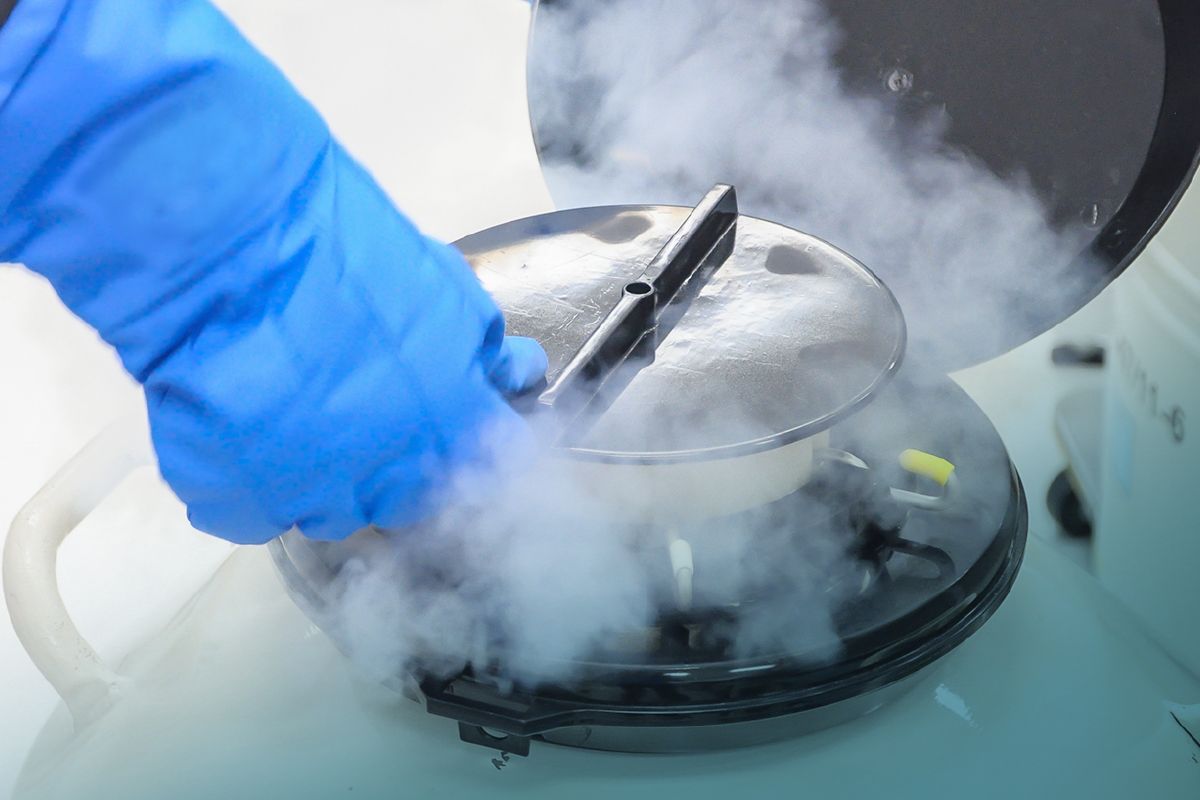The COVID pandemic saw a rise in egg freezing

A few minutes every morning is all you need.
Stay up to date on the world's Headlines and Human Stories. It's fun, it's factual, it's fluff-free.
All over the world, the average childbearing age is getting slightly older. As of this past June, the average age women give birth now stands at 30 or above in most Organisation for Economic Co-operation and Development (OECD) countries, a global economic and trade policy group with 38 member countries. Only two of the countries, Columbia and Mexico, have a mean age of childbirth below 28 years old. And as women reach their 30s, fertility rates begin to drop, and the chances of getting pregnant become less likely. But, those who want to have children but aren’t able to have them anytime soon can choose to freeze their eggs for later in vitro fertilization.
Both expensive and invasive, egg freezing became a little more accessible during the pandemic. Now, fertility clinics are reporting a rise in egg freezing. Women who would’ve otherwise been traveling for work or whose careers and social lives didn’t allow for the intensive shot regimen or regular doctor appointments that come with this procedure were suddenly sitting alone at home all day. The pandemic also made dating harder for single people while the so-called “biological clock” continued ticking away.
Key comments:
“COVID has really pushed the needle in terms of people freezing their eggs,” said James A. Grifo, director of New York University’s Langone Fertility Center. “A lot of women are afraid to try and get pregnant. Because of this delay, they wanted to do something to protect their fertility, so they froze eggs as a way to say, ‘Okay, I can’t get pregnant now. I’m afraid of this virus, but I’ll do something.’”
“I had a lot of time to think about what is important in life. I used this time to really consider what life experience is, how I wanted to live it and how to get the future I desired. That is when I decided that I was sure that I wanted children, preferably biologically, and that I would freeze my eggs,” said Laura Pommer, who froze her eggs after becoming newly single at the start of the pandemic.
“If, when, how many and with whom we have children has significant implications for pretty much every aspect of our adult lives – where we live, where we work, how we spend and save our money as well as our physical and emotional wellbeing. Reproductive planning is part of our life planning,” said Bat-Sheva Maslow, a reproductive endocrinologist.




Comments ()